Sidetracks And Detours present PASS IT ON 47 Sunday Supplement 7 4 2024
Sidetracks And Detours
present
PASS IT ON 47
Sunday Supplement 7 4 2024
Hello and welcome back to our reading rooms. Whether you are looking for music related items we have it all covered from classical to country and all the jazz bars and broadcasters in between. We bring you previews and reviews and profiles of the musicians who gave them. On Monday 8th April we will be heading out down the sidetracks and detorus again so we can send you a free daily post of the stories of interest we find. We´ll be into cinema territory and asking whether or not one song can enhance a film. We will also find out why Oppenhiemer cleaned up at the Oscars. We will pick up news from Pokey LaFarge and consider the career of Janis Joplin before checking into a book store to pick up some favourite biographies. Should you need any more to read, we are sure you´ll find our archives of over 1,100 free to read articles easy to negotiate.. Thanks again for dropping in. We appreciate it.

CONTENTS

I Love Manchester
A TEASING BURLESQUE preview by newsletter
I Love Manchester
HURRY FOR THE HALLE preview by newsletter
Manchester Music Festival
THE ROMANTIC JOURNEY preview by newsletter
Stoller Hall Box Office, Manchester
SOME ENCHANTED EVENING
preview by newsletter
Music In Portsmouth
WATERLOOVILLE preview by Newsletter
Music In Portsmouth
PORTSMOUTH GALA review by newsletter
Music In Portsmouth
RICHARD PEARCE ORGANIST profile by newsletter

Live Jazz at Progress
Friday 10 May 2024
FIVE-WAY SPLIT preview by newsletter
Jazz On Air
HOT BISCUITS served by Steve Bewick
Recorded Music
new releases NORTH SEA STRING QUARTET
A Reader´s Perspective: All Points Forward
NASHVILLE CITY BLUES
My Journey by James Talley, American songwriter
review by Peter Pearson
Island Insights
BACH TO THE FUTURE with Norman Warwick


I Love Manchester
A TEASING BURLESQUE
preview by newsletter

Editor´s note:- When I opened these pages, some four years ago now, the following sentence was not one I ever thought I might write. This week´s I Love Manchester promises even more delights than ever, with a forthcoming performance of ´a fun, flirty evening of live burlesque, cabaret, and musical entertainment featuring performances from some of the finest burlesque performers in the UK.´
Doors open 6.45pm with a reduced menu available. Show starts 8pm prompt and last orders 10:45pm.

Upcoming dates:
12th April 2024
3rd May 2024
14th June 2024
12th July 2024
9th August 2024
You can see these High Tease Burlesques with Cherie Bebe at Richmond Tea Rooms (TGI Fridays) in Manchester. Check out the I Love Manchester web site.
I Love Manchester
HURRY FOR THE HALLE In partnership with Opera Rara.
THU 18 APR 2024, 7.00PM, The Bridgewater Hall
Verdi’s Simon Boccanegra (original 1857 version)
preview by newsletter
The Hallé’s opera concert performances with Sir Mark are always eagerly anticipated and this season’s choice will be no exception: a fascinating opportunity to hear Verdi’s Simon Boccanegra in its original 1857 version, in a major collaboration with Opera Rara and featuring the Chorus of Opera North.
Set in medieval Genoa, and with a plot built around love, political intrigue and revenge, at its core is a recurring theme in Verdi’s operas, the love between a father and daughter, which brings tragedy in its wake. Heading an internationally stellar cast in this impelling drama is celebrated Argentinian baritone Germán Enrique Alcántara (Boccanegra), and we welcome back Eri Nakamura singing Amelia (Boccanegra’s illegitimate daughter). Iván Ayón-Rivas performs Gabriele Adorno (Amelia’s lover and her father’s political foe) and William Thomas, making his second appearance this season, is Jacopo Fiesco, Amelia’s grandfather.
Opera Rara join forces once again with The Hallé in Manchester to record and perform the newly edited original version of Verdi’s Simon Boccanegra. The new Ricordi edition of the 1857 Simon Boccanegra, by Opera Rara’s Repertoire Consultant Roger Parker, is the first based on Verdi’s autograph score of the opera, which has only recently become available to scholars. The 1881 version, considered by many commentators to be superior to its 1857 cousin, is performed regularly worldwide. However, we believe that if the 1881 revisions had not come into being, it is certain that the 1857 version would hold an important place in Verdi “canon”. We want to shine a new light on the original in a performance and new studio recording with some of the world’s greatest Verdi specialists.
Sir Mark Elder, in his final season as Music Director of The Hallé, leads an all-star cast. Argentinian baritone Germán Enrique Alcántara makes his role and Opera Rara debut in the title role. Eri Nakamura returns to The Hallé for her Opera Rara debut to sing the role of Amelia, Boccanegra’s illegitimate daughter. Returning to Opera Rara following his highly-acclaimed debut with the company in Mercadante’s Il proscritto, Iván Ayón-Rivas sings Amelia’s lover and Boccanegra’s rival Gabriele Adorno, and British bass and rising star William Thomas sings Jacopo Fiesco, Amelia’s grandfather.

Performers
Sir Mark Elder, conductor
Germán Enrique Alcántara, Simon Boccanegra
Eri Nakamura, Amelia
Iván Ayón-Rivas, Gabriele Adorno
William Thomas, Jacopo Fiesco
Sergio Vitale, Paolo Albiani
David Shipley, Pietro
Beth Moxon, Amelia’s maid
Chorus of Opera North
RNCM Opera Chorus
The Hallé
It sort of came up at the right time. I thought I guess if I’m ever going to do this now is the time to jump in. I’ve spent a lot of wonderful moments musically and otherwise in Vermont so that was a big part of it.” – Philip Setzer, Artistic Director.
“It’s very humbling to have this role and to be able to provide a platform for all the musicians to come and play. I think we really have the magic formula to make it a very successful year.” – Jenny Lin, Executive Director.

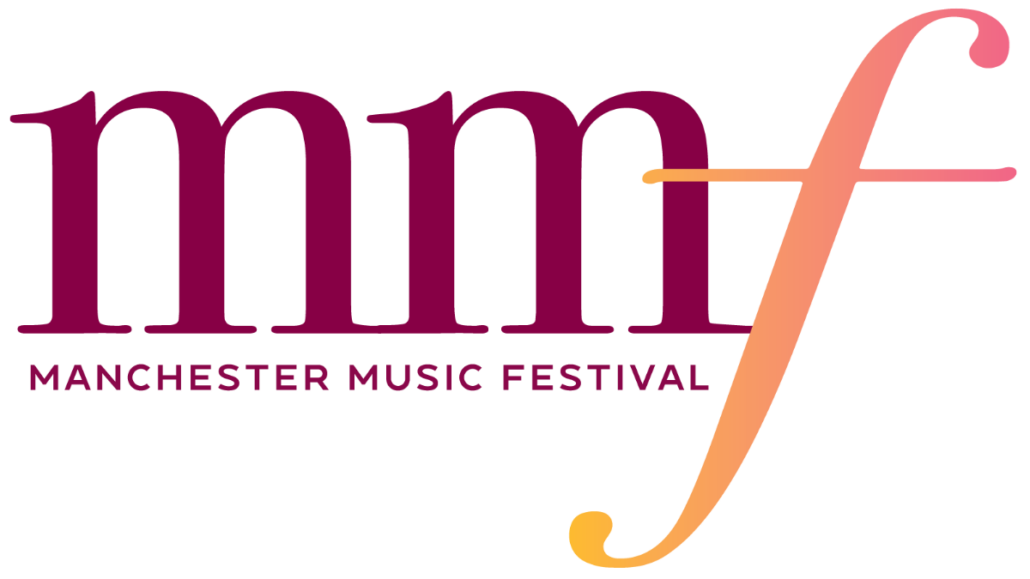
Manchester Music Festival
THE ROMANTIC JOURNEY
preview by newsletter
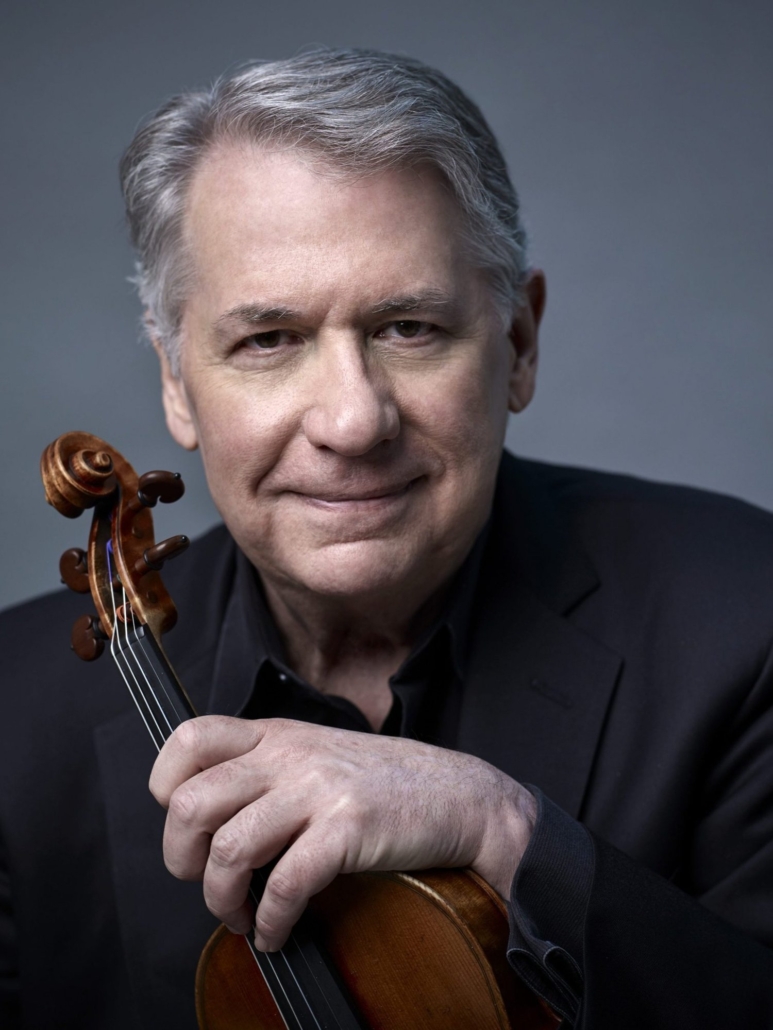
Get ready for our Golden Anniversary! Our 2024 season, curated by Artistic Director, Philip Setzer, (right) features more than 30 events celebrating “The Romantic Journey,” a theme that cuts to the heart of how art reflects our humanity. Take part in five weeks of musical performances, masterclasses, open rehearsals, talks, and outreach programs July 11 – August 8. We invite you to be part of this historic celebration.
I want to say to all of you what a great honor it is to be appointed the new Artistic Director of the Manchester Music Festival. My colleagues on the festival’s staff, the board of directors and I have worked tirelessly to create a memorable menu of musical delights for all of you for the 50th Anniversary in 2024. The theme of the Festival will be called “The Romantic Journey”. I have always thought of each program, and especially a series of thematically-linked concerts, as a kind of journey—one that both increases our knowledge and deepens our enjoyment of these great works of Art. We will explore the definition and roots of Romanticism, and experience the passing of the romantic torch from Beethoven to Schubert, Schumann, Mendelssohn, Brahms and onward to Tchaikovsky, Debussy, Dvořák, Respighi, and Barber. The journey will take us all the way to a newly commissioned work by Sarah Kirkland Snider, exploring romanticism from the viewpoint of today. We will also have concerts featuring our Young Artists and a special program called “Given a Chance”—romantic works of composers who struggled to have their voices heard due to their gender and/or the color of their skin. In addition, we will present two family concerts for children, informative and fun. The opening program of the festival, performed by the Wu Han-Philip Setzer-David Finckel Trio, will consist of two monumental works that helped herald the new Romantic Era of the 19th Century: Beethoven’s “Archduke” Trio, op. 97 and Schubert’s Eb Trio, op. 100. The festival’s Grand Finale will feature the great American soprano, Christine Goerke, who had tremendous success as Brünnhilde in the most recent production of Wagner’s Ring Cycle at the Met Opera. We certainly hope you will join us next summer as audience members. We cannot do this without your help. I know I speak for everyone involved when I thank you from the bottom of my heart for your friendship and support.
Check out The Manchester Music Festival website for full details.

Music In Portsmouth
WATERLOOVILLE MUSIC FESTIVAL
preview by Newsletter
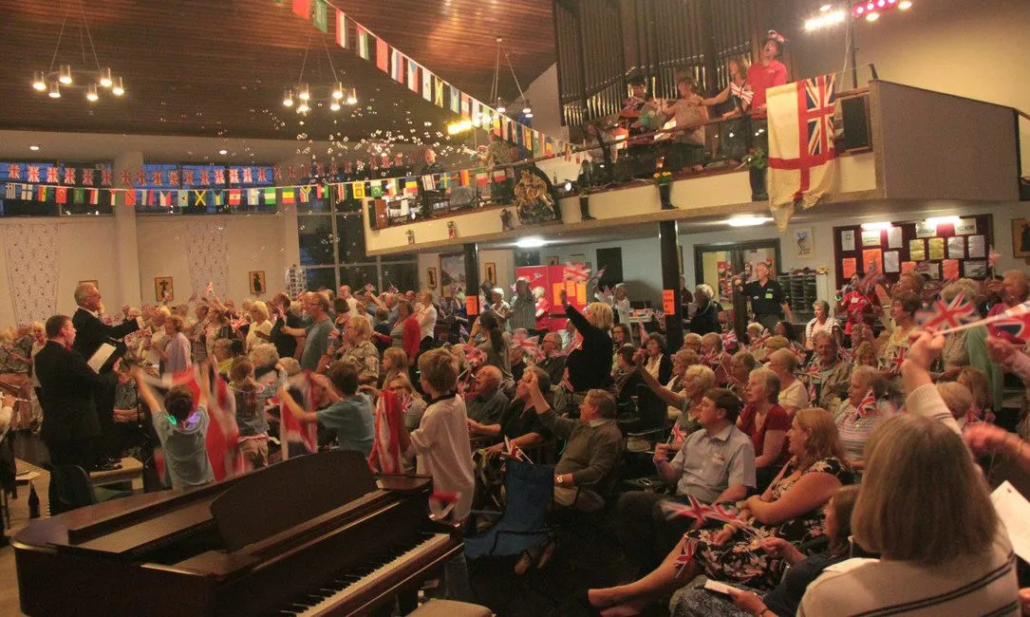
Waterlooville Music Festival 2024 runs from Sunday 9th to Saturday 15th June. All at St George’s Church Waterlooville, 7.30pm, licensed bar opens 7pm.
Sunday 9th: With its heritage going back to 1880, The Portsmouth Citadel Salvation Army Band consists of some 30 talented musicians, and is one of the oldest, most famous and respected Salvation Army bands in the UK. At this concert the band will be demonstrating its versatility, going beyond its usual repertoire focused on Christian music to present a range of pieces primarily designed to entertain.
Monday 10th: we have a brilliant double bill: Cascade Chorus is a group singing capella in four part harmony with a wide range of popular music and songs from the shows. Africapella brings the glorious harmonies, spiritual music and rhythms of African and Caribbean cultures. They have visited the festival in the past and are always highly entertaining and popular.
Tuesday 11th will see a rather special visit to the festival by the nationally renowned Havant Chamber Orchestra, recognised as one of the foremost amateur orchestral societies in the country. Conducted by Ben Qureshi.
Wednesday 12th: Hampshire Police Male Voice Choir. Their last visit to Waterlooville Music Festival in 2019 was a complete sell out and for good reason as this choir has been “On the Beat” as one of the leading male voice choirs in the South of England since it was established in 1941. Under the Musical Direction of Geoffrey Porte.
Thursday 13th: they are back again – the bewildering talent of “All That Malarkey” with a brand new show. This amazing and talented group will simply have you completely spellbound wondering what on earth they are going to do next. It is a truly stunning and original feast of entertainment. A genius Musical Director and composer, and classically trained vocalists who have performed in classical opera as lead singers at a high level at prestigious venues such as the Millennium Centre Cardiff… but performing brilliant, completely original arrangements of very popular songs and doing so with much gusto, theatre, comedy and wit…
Friday 14th: Maury Deans Solent Big Band – to mark the 80th Anniversary of D-Day, music from the forties era, magical nostalgia of Glen Miller, Count Basie and many others – established in 2008, this 20 piece band specialises in arrangements by the late great Maury Deans, and has an extensive repertoire of all the favourite big band sounds.
Saturday 15th: The traditional Grand Finale – “Last Night of the Proms” – with all the atmosphere, ceremony and flag-waving of the real thing.
Full details of the programme, and also information on free lunchtime and afternoon events, can be found on the festival website.
Get your tickets now before the most popular evenings sell out!

live Music In Portsmouth
PORTSMOUTH M.F. GALA CONCERT
review by newsletter
Portsmouth Music Festival is a compendium of categories and compartments like a local musical version of Crufts and so its celebration of the winners is as various as those jamboree bags of bygone days in which you might find a whistle, a paper hat, a bubble gum and a gobstopper, all of which once seemed like special treats. It’s not often a programme opens with a piece by Muse which is followed by Hummel.
It’s a strange feeling to find that ‘young people’ now are into rock music that came after I’d affected to grow out of it. My nearest reference point for singer Millie in Attica, a 4-piece band, was Siouxsie Sioux. Their version of Hysteria is impressive and, not being familiar with the original, I’ll take their word for its verisimilitude and retro sympathies. They know exactly what they’re doing.
Elias Simojoki’s Hummel Trumpet Concerto soothed and smoothed in contrast before then merrily and militarily parading Elias’s fine phrases accompanied neatly and confidently by his brother Markus.
An early highlight, though, was surely Mia Drover’s Rachmaninov Prelude that noticeably stilled the audience with its atmosphere and composure. Any reservations I’d had about surrendering a Sunday afternoon to a lucky dip of a show were banished there and then.
The classic recipe for such a show is to make ’em laugh, make ’em cry and then send on the dancing girls and Mabel Alsford’s performance as Veruca Salt from Willie Wonka brought forward what used to be the somewhat demanding personality of Violet Elizabeth Bott remade for a later generation, delivered with consummate self-possession that prompted our genial host, Andrew McVittie, to enquire how much of it was acting. All of it, I’m sure.
Ben Ward’s two Villa-Lobos guitar Preludes were next a captivating contrast full of technique and sensitivity that made a deepening, mystical impression as they progressed before equally compelling was Emme Hensel’s sonata movements by Taktakishvili, the first sorrowful and so soulfully played and the second chirruping like a nest of birds that kept Karen Kingsley as busy as one of those dextrous pianists from the early days of cinema.
In such a gala event that does have ‘something for everybody’, there will be items that aren’t quite the business for some of us. When I was about 13, Jack, ‘a seasoned metalhead’, would have been sensational to me and blown everybody else off stage. He brought in a wide range of electric guitar effects into what was ostensibly a blazing performance of some Metallica. I’m looking forward to celebrating the 80th birthday of Miss Diana Ross on Tuesday, though, and the flying-V guitar looked like the most olde worlde exhibit of the afternoon. The audience loved him, though, and that matters more.
Shifting as erratically as ever through genres, Hazel Humphries flirted with any idea of Crookhorn Sunday afternoon decency in her performance of The W.I. Calendar that thankfully went no further than it did and, in the hope that all my retro references don’t become tiresome to anybody born since about 1980, she’d have been ideal for an old TV show called The Good Old Days.
Karen’s versatility in the role of accompanist went yet further in switching from that to violinist Katie Ho’s Smetana with its change of tempi and stylistic nuance before Katie was joined by sister, Priscilla, with her magical harp and they sparkled together through a Romance by John Thomas.
And so, bring on the dancing girls, indeed. Lily Pearce was a lyric poem incarnate with her sequence of balletic moves and, as was remarked afterwards, was, like all the performers, brilliantly in ‘performance mode’ as soon as she was on stage. Katie Bone’s vocal on Wherever He Ain’t from Mack and Mabel was full of personality and New Jersey attitude and the Fortuned Cookies were a ‘kooky’ 4-piece a cappella doing what a barbershop quartet would have done if there had been barber shops for ladies. There was once a group called Fascinating Aida but that’s the closest I can get.
But it wasn’t all over because Students from the Marie Clarke School of Dance provided extracts from Beetlejuice full of slick choreography and vibrant song’n’dance by way of a literally showstopping finale. It was ages ago that it was suggested that the age, and even idea, of Variety was over. Well it isn’t on this evidence.
In a way it’s easier on the performers who each contribute their part but the audience have it coming from all directions. That was a tremendous show. Exhausting, really. Best of luck to anybody who has to write about it.
review by David Green
Music In Portsmouth
RICHARD PEARCE ORGANIST
profile by newsletter
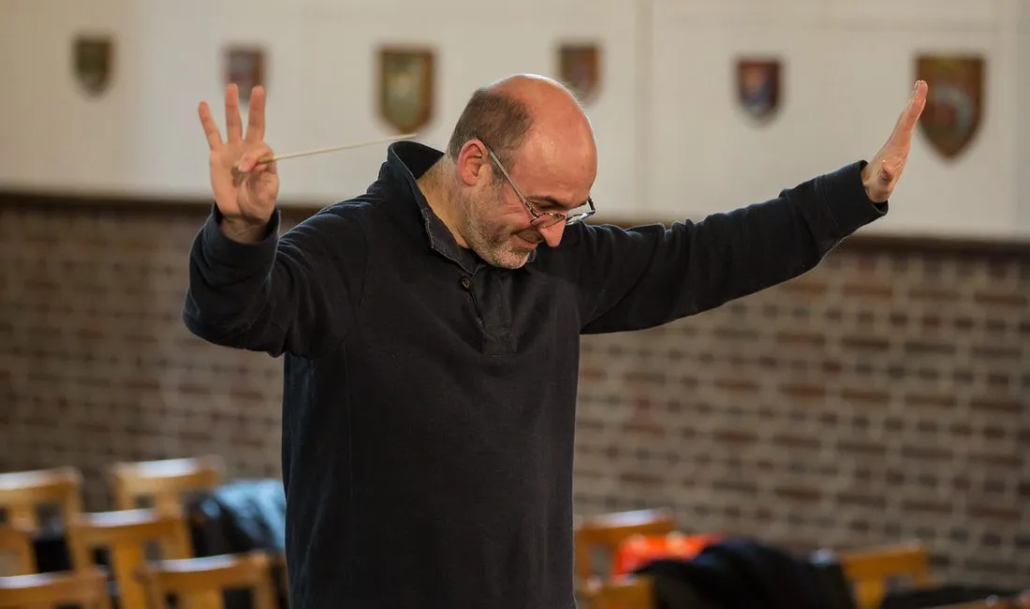
Richard (right) presented a varied programme of pieces from much-loved Bach fugues to works by lesser-known modern French composers such as Alain and Langlais, alongside a sonata by Elgar and a chorale by César Franck on Wednesday 20 March at St Peter’s Church.
What are you looking most forward to when performing at the Petersfield Musical Festival this year?
It’s nice to perform close to home, as most of my work as an organist and a conductor is in London, in a building where my Mum comes to church every week, and where I can expect some friends and family in the audience. St Peter’s is a beautiful church, especially since its renovation, which has greatly improved its acoustics.
I’m book-ending the programme with pieces from JS Bach, for me the greatest composer of all time, and I’ve chosen two substantial pieces. His Prelude and fugue in C minor is a very dramatic work, a statuesque piece which unfolds over ten minutes. It shows how he is able to pace music over a long time frame. At the end of the concert I am playing his “St Anne” Fugue in Eb. It starts in an old fashioned way, progressing through to a jig and then combining the ideas of the first two sections through to a wonderful conclusion. It also shows the depth of his religious feeling – it’s full of religious symbolism.
In the middle of the concert I will be playing various pieces by three French composers.
The organs in France are very colourful. The organ in Petersfield was built in Scotland in the Continental style, so it will show up these pieces well. A lot of French organ music is very atmospheric: you can imagine it being played in a big cathedral, filled with incense.
I start with three pieces by Jean Alain, Le jardin suspendu, Aria and Litanies. Alain wrote about Litanies that if you’re not exhausted having played it, you weren’t doing it right! César Franck’s Chorale no. 3 in A minor is statuesque, and uses lots of French sounds.
Next, I will be playing Elgar’s Sonata in G in four movements, a substantial piece that reflects the Elgar March that I play at the Last Night of the Proms each year.
I’m playing three pieces by Langlais – Chant de paix, Chant héroïque, and Mon âme cherche une fin paisible. All of these pieces are music which might be improvised at various points of a service, in the tradition of French organist/composers.
Who and/or what have been the most important influences on your musical career?
Both my parents are singing teachers. At the age of 8 I went to Westminster Abbey Choir School. I received specialist tuition in piano and then in organ. Geoffrey Morgan, the sub-organist, played a major part in developing my skills. I used to have music tuition for up to three hours a day over the five years I was there. At my next school I had plenty of experience in accompanying pupils, and in my gap year I sang and played at Wells Cathedral School. I then went on to attend Trinity College, Cambridge as an organ scholar, playing one of the finest organs anywhere.
I now have the privilege of regularly playing the organ in the Royal Albert Hall. I regularly play overnight sessions there.
What have been the greatest challenges of your musical career so far?
I have come to recognise that the sound of an organ is very much a function of both the instrument and the building that it’s in. You have to respect the instrument, and cannot “fight” it.
It can be hazardous to play the organ: it can contain several thousand parts, and it is possible that one part doesn’t work. You might set up the organ and then find the stop isn’t working or putting the instrument out of tune, and you have to be able to improvise.
In the Albert Hall just before Christmas one year with a full orchestra playing and with an audience of 5,000 singing, unfortunately one of the keys got stuck, but fortunately it was fixed after one verse. The curator took six hours to work out what had gone wrong. After that I was given a tour of the instrument. Some of the components have not been removed since 1881, and we’re unsure what would happen if they were removed. Each instrument is unique. This demonstrates the whole engineering challenge of keeping an organ working.
What advice would you give to those who are considering a career in music?
If you are considering this, don’t look at music as the only option. We’re coming to recognise the benefits that music gives you, including an ability to work with other people (often in quite an intimate way that requires a close understanding), the appreciation of beauty and recognising that there’s more to life than money. It’s a tough career but can be greatly rewarding, so follow it as far as you can. If your career takes you off in a different direction, you might be able to come back to it later in life.
What would you like to be doing in 5 years’ time?
I’d like to have a bit more time for practising the organ more, and learning new music. You can so easily download music these days.
About Richard
Richard was an organ scholar at Trinity College, Cambridge, then studied piano accompaniment for two years at the Guildhall School of Music and Drama in London. He is now a professor at the GSMD, coaching singers and instrumentalists for careers in opera and the concert platform, and is a trustee of the Josephine Baker Trust, which supports young soloists at the Royal Academy of Music and the Royal College of Music in London.
Richard is busy as a conductor, pianist and organist with professional and amateur choirs. He records and broadcasts regularly with the BBC Singers, and particularly enjoys the challenge of preparing an extremely wide variety of repertoire, including much contemporary and new music. He has conducted works by James MacMillan, Judith Bingham, Britten and Roxanna Panufnik for broadcast on BBC Radio 3. As organist and pianist he has performed with many of the UK’s best-known choral conductors, including David Hill, Stephen Cleobury, Paul Spicer, Bob Chilcott and Sofi Jeannin.
Richard has been musical director of the Waverley Singers, based in Farnham, Surrey, since 2009. During this time, he has led the choir in some 40 performances. Particular highlights have been concerts in Guildford Cathedral of Monteverdi Vespers, Verdi Requiem, Beethoven Mass in C, Brahms Schicksalslied, Mozart Requiem and Bach Magnificat in D. Alongside these major works he has introduced new and varied repertoire to the choir, including commissions and many newly-written compositions. He has recently taken up a new post as Director of Music of the Romsey Choral Society. In coming seasons he will be directing performances with them including Handel’s Messiah, Bernstein’s Chichester Psalms, Elgar’s The Dream of Gerontius and Beethoven’s Missa Solemnis.
Richard is regular organist with the Philharmonia and BBC Symphony Orchestras in London; with them he has performed with many inspirational conductors including established maestri Lorin Maazel, Pierre Boulez, Oliver Knussen, Andrew Davis, Sakari Oramo, Marin Alsop and Ed Gardner, as well as up-and-coming stars such as Santtu-Matias Rouvali and Valentina Peleggi. Recent performances have included the solo organ part in the European première of Unsuk Chin’s Le Chant des Enfants des Étoiles with Esa-Pekka Salonen in London’s Royal Festival Hall, a tour of China performing Saint-Säens organ symphony with Vladimir Ashkenazy, and the solo organ part in the Glanert Requiem für Hieronymus Bosch with the BBC Symphony under Semyon Bychkov. He also performs regularly in Promenade concerts and recordings, including at the Last Night of the Proms to a worldwide television audience.
Richard makes twice-yearly trips to Sweden to work with groups in the Stockholm and Malmö areas, and frequently conducts and plays for services at St. Margaret’s Church, Westminster and at the Houses of Parliament.


l
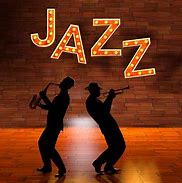
Live Jazz at Progress
Friday 10 May 2024
FIVE-WAY SPLIT previewed by newsletter
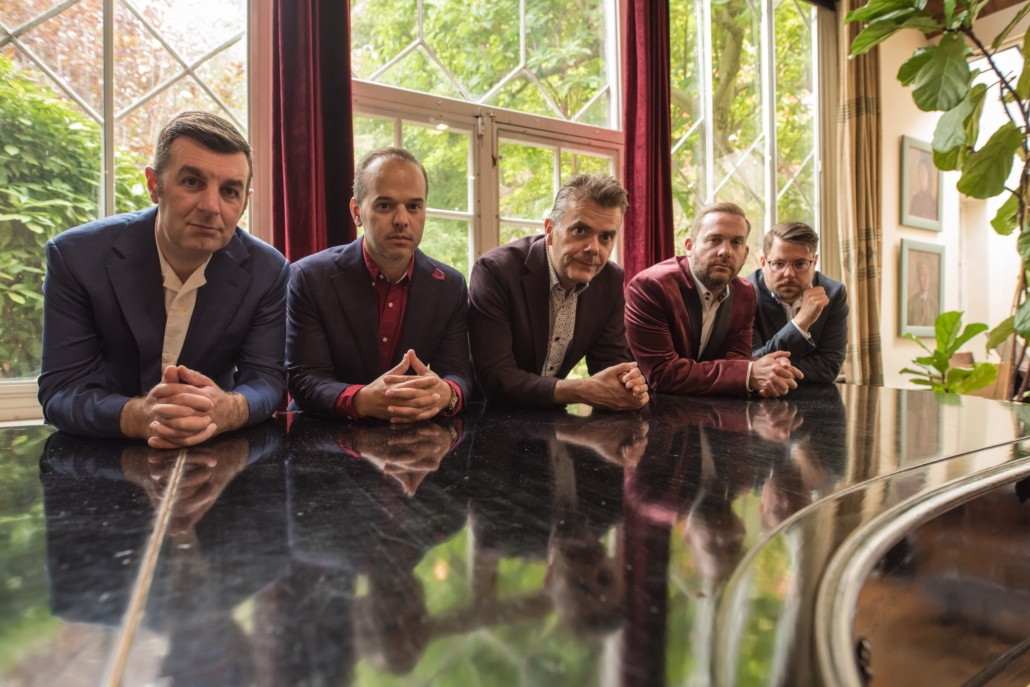
| Friday 10 May | Progress Theatre, Reading (details below) | 7:30pm | £19.00 (£17.00 concessions, £10 under 16) plus maximum 5% booking fee Quentin Collin trumpet & flugel horn Vasilis Xenopoulos tenor saxophone Rob Barron piano Matyas Hofecker bass Matt Home drums “Great to hear these accomplished musicians in this kind of creative shape. Track them down. It will be worth it.” Peter Vacher Jazzwise Five-Way Split is a new jointly-led band featuring five of the finest contemporary bebop musicians in the UK. It is fronted by internationally renowned trumpet star Quentin Collins, Greek saxophone phenomenon Vasilis Xenopoulos and the golden touch of pianist Rob Barron. Added to this is virtuosic bassist Matyas Hofecker and rock-solid drummer Matt Home. The band’s vision is to carry on the lineage of groups like Art Blakey’s Jazz Messengers as well as mirroring the New York contemporary-bop scene. From this inspiration, the band presents a sound that respects the tradition of hard-bop and straight-ahead jazz in a way that will appeal to today’s audience. With an extensive repertoire of carefully crafted and imaginative original compositions, along with hip, swinging material by greats like Jimmy Heath, Cedar Walton and Horace Silver, Five Way Split deliver a night of the most swinging and soulful jazz in town. Quentin Collins “Splendid” ★★★★★ – BBC Music Magazine Vasilis Xenopoulos “One of the most fiery young saxophonists around” ★★★★- The Times Rob Barron “Classic Jazz Piano at it’s best” 5/5 – UK Vibe |

Jazz On Air
HOT BISCUITS served by Steve Bewick
xxxx


Recorded Music
new releases NORTH SEA STRING QUARTET
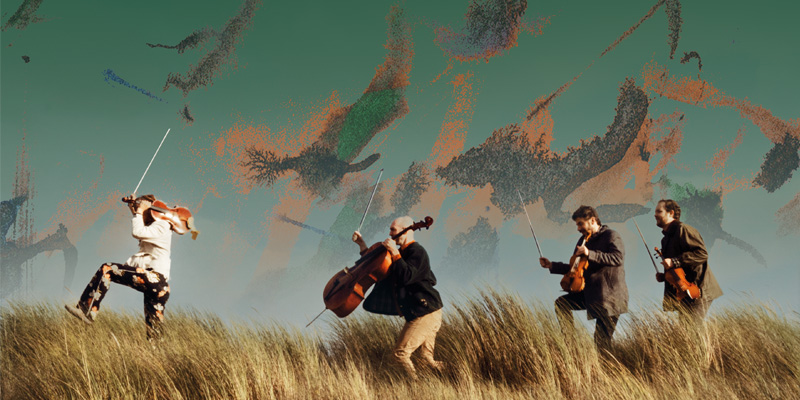
Thanks to the support of many, we successfully concluded our crowdfunding campaign and were able to enter the studio in December to record our album. It became four intensive days in the inspiring concert farm d’Rentmeester in Valthermond. We are very happy with the result and today we are releasing the first single!
Finally, today we present the first single from our album! WTTT: Part I & II is the first half of a four-part drum ‘n bass suite composed by our violinist Pablo Rodríguez, in which we recreate electronic sounds, effects and beats on our acoustic string instruments. The artwork was created by artist Ivana Djukic, who will also provide the album cover and stage design for our album release tour.
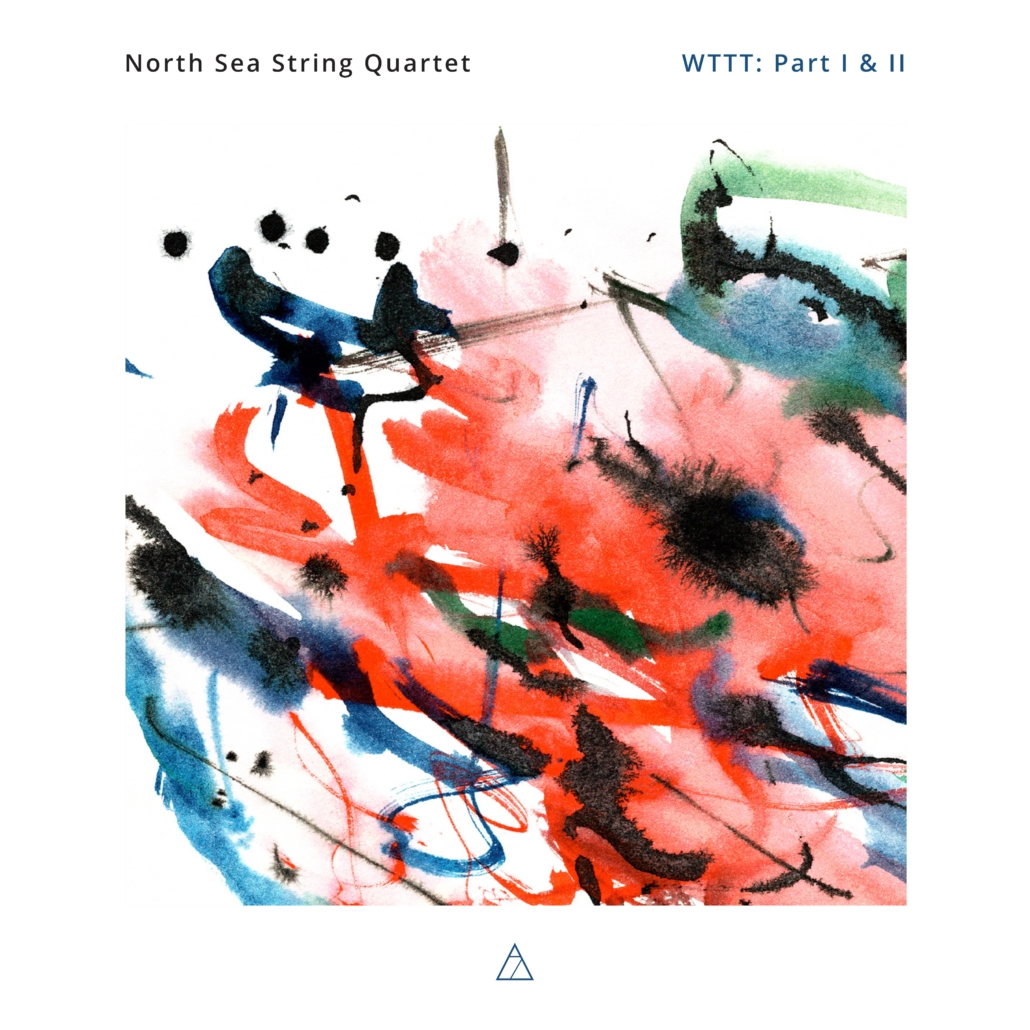
The album, which symbolizes a plunge into our creative waters and has therefore been named “Splunge,” will be released on May 10, 2024. We will celebrate this with the first concert of our Dutch release tour, at the beautiful venue LantarenVenster in our home city of Rotterdam. It would be great to see as many fans as possible at this album-presentation concert; it will not only be a beautiful concert but also a party (with DJ afterwards)! Should May 10 not be convenient, no worries. The tour list offers many possibilities.
We have waited a long time for a debut album from this incredible groups that makes music out of sounds. They are slightly jazz, slightly avant garde but whatever categories you can call up, just settle for simply superb.
It is tempting to employ words like dramatic and intense to describe three performances we have seen them perform. Because their music took us to places and landscapes and even times that were unexpected those words might apply, but the truth is that, somehow a NSSQ gig leaves you reassessing your life and your role on this earth. The group are at one with time and space and as you listen to their instrumental work you find that you are too.
These pages supported their crowd-funding appeal and we know that some of our readers responded to that, and now here the group are with the album and the single they promosied. If we were in the habit of awarding stars with our reviews we would give this album a five out of five.
Check the NNSQ website for details.


A Reader´s Perspective: All Points Forward
NASHVILLE CITY BLUES
My Journey by James Talley, American songwriter
review by Peter Pearson

When I discovered this book I had not heard or seen anything about James Talley (right) since the mid-seventies when he issued several highly regarded albums in the country singer- songwriter genre and then seemed to disappear. I was therefore keen to find out what had happened to him during all those years.
Talley comes across as a humble and generous family man whose misplaced trust in others and, it has to be said, his own errors of judgement, resulted in his music career effectively put on hold for over 20 years.
In many ways his story is an object lesson in how not to navigate the choppy and dangerous waters of the music industry, particularly when you are operating in a niche part of the market.
Norman has already covered Talley´s early career and recordings in his 26th January 2022 article titled James Talley – Names Fall Out In Conversation.
Born in 1944 James formed his own group in High School, a trio modelled on The Kingston Trio. After he was inspired to write his own songs, following encouragement from Pete Seeger, he began to write songs about the indigent Hispanic people he met as a welfare caseworker in Albuquerque, New Mexico. In 1968 he moved to Nashville where he hoped he might get his songs recorded but in order to support his wife and family, he took a job in the Nashville environmental agency, which was preoccupied with controlling the local rat population.
After making some demos he pedaled them around Nashville and ultimately landed a recording contract with Atlantic Records. However, Atlantic soon closed its Nashville office and whilst working in his day job (by then as a carpenter) he found himself working at the Nashville home of Frank Jones,the head of Capitol’s country music division (a big stroke of luck or Nashville is an incredibly small community!). After hearing his demos Jones signed him up to a record contract and became a great champion of his music.

His 1975 first album, Got No Bread, No Milk, No Money, But We Sure Got a Lot of Love, received critical acclaim and was different enough to set him apart from others in the genre.
Three more albums followed during which time President Jimmy Carter and his wife became fans and friends. Then came his big mistake in Spring 1977.
It started with him losing his friend and manager whose circumstances compelled him to move to a new label in Los Angeles.
Talley was at this time also somewhat irked that he was not getting sufficient support from Capitol, who like most major labels regarded the country division as a niche part of the market.
Talley had been performing shows with Jerry Jeff Walker and via Walker’s legal manager, was introduced to his creative manager, Michael Brovsky. A meeting was arranged in Austin.
In Talley’s own words: “I asked Bill Williams at Capitol for a plane ticket to Austin to meet with Brovsky. Bill knew I needed management, and these guys seemed to be doing a good job for Jerry Jeff. So Bill paid for a ticket and a hotel night for me to meet with Brovsky in Austin.”
A management deal was arranged but later in the year Bill Williams was compelled to leave his job as Director of Country Promotion owing to an affair with one of his female singer-songwriter artists and other personal issues. Talley felt that without him the label would not support his albums.
Shortly after Talley got a call from Brovsky who said Capitol is not doing the job for you, I want to put you with a real label. Brovsky explained that he had just signed Guy Clark to a lucrative Warner Bros. contract and he could do the same for him. Against all advice and with his mentor at Capitol, Frank Jones, double checking with him that he was sure he wanted to go ahead, he instructed Brovsky to sever the relationship with Capitol. It was tantamount to giving notice to a current employer without a written job offer. After it was done, he never heard from Brovsky again. He would not respond to phone calls. A bad situation then became even worse.
Capitol deleted his albums from their catalogue and locked them away in the vaults for at least 20 years. He says he was also blackballed by Capitol to other labels. With a debt due to Capitol for advances on his recordings and no cash he finally took a job as an Estate Agent in 1983.
I was particularly intrigued by his account of his career thereafter. As a John Stewart fan and subscriber to his fanzine and newsletters I was privy to developments in his career. Like Talley he was on Capitol and had issued classic albums but got dropped from the label (Capitol also deleted his albums and locked them in the vaults) went to RSO and when that did not work, set up his own label in 1984. Pre internet and pre Amazon, he sold his albums at gigs. Stewart had a mailing list and in the UK you received a mail out, you sent dollars and you received the album in the post, despatched from his home address. Whilst John Stewart felt he was done with major labels Talley instead seems to have had a major label obsession to the extent of leaving the business.
Bear Family Records in Germany came calling the following year. He explains that their operating model is to pay next to nothing to major labels for the recordings locked in their vaults. The deal is for licence to sell in Germany but they flout that. Suing them costs more than it is worth, consequently the artists get nothing except exposure. Furthermore Bear Family did not even get the masters.They went to the vaults with a digital recorder and copied from the masters.
This puts a whole diferent perspective on my Bear Family CD of John Stewarts classic, ´Phoenix Concerts!. Bear Family have released all John’s Capitol recordings on their label.
Talley eventually does see the light and sets up his own label in 1999. He later gets access to his back catalogue and issues new product.
The esteemed writer Peter Guralnick described his career implosion as, ‘It’s almost like being exhibited as a prize fish, and then being tossed back into the sea.’
All in all the book is a good read. For me it explains some of the finer business practices I was not aware of. But it does make you think how much of Talley´s woes were self inflicted and of how many others have suffered similar problems but have tackled them in different ways.

Editor´s note. As I said to Peter when he suggested this article I always loved the sound and production values of the James Talley albums I heard. My favourite song is of W. Lee O´Danile And The Light Crust Doughboys and that one track, alone, is deserving of a place above the radar rather than below Peter´s article, and the book he refers to, illustrates how important it is to examine the status of record label moguls and the the status of the musicians signed to that label.

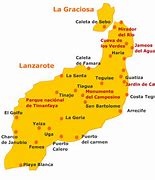
Island Insights
BACH TO THE FUTURE´
with Norman Warwick
One day last week, when I had been reading a piece about how The Grateful Dead are inspiring rock musicians today, I received an e mail from an old friend. Steve Bewick is a radio presenter of a weekly jazz programme, Hot Biscuits, in the UK. He often carries news we send him of live music events here on the island and as a regular visitor to us knows that we enjoy a plethora of live classical music events here. His e mail included a link to a podcast speaking about how the music of Bach, even today, still influences the current jazz scene.
Given that I knew that in two days time my wife, Dee, and I would be taking a late afternoon boat ride along the east coast of Lanzarote, to a concert recital by two violins and a piano that would include several Bach pieces, I immediately listened to the YouTube programme delivered by Rick Beato.
The podcaster said at the start of his communication that he has been wanting to talk about Bach for a long time. There are a number of reasons why he hadn´t got round to it until now, but he said the main reason was that, although there is so much to say about Bach, he simply didn´t know what to call the talk. He has actually called it What Makes Bach Great? He doesn´t mean that title in a trite way but feels it opens a door that might explain why Bach and the music he created 300 years ago still relevant today.
He reminded us that Johann Sebastian Bach was born in 1685 and died in 1750.
During that time, says Beatto, Bach left a legacy that historians and musicians would be delving into for centuries still to come. His limitless musical explorations expressed the order of the physical and biological universe in exquisite mathematical precision and detail..
I claim no retention of Bach´s life or his genius, but I think I know in some way what Mr. Beato means by that. When Bach´s music was recorded on synthesiser in the late nineteen sixties / early seventies it took his music to new listeners and youngsters who at the time might well have also been listening to pop chart music. On these recordings a sufficient number of young people bought into Bach´s rhythms and melodies that for a few brief months of the twentieth century saw Bach became a bon fide rock star.
The concert we went to see only two days after listening to this broadcast included music from Bach, Beethoven and Beriot and was to be performed by two musicians we have previously featured on these pages.
After a leisurely boat ride we enjoyed a two hour relaxation and meal in the calm atmosphere at La Valeta, a mere hop skip and jump from disembarkation. The views stretch right across the moorings of the harbour and out to the sea beyond the harbour wall. Look the other way, however, and your gaze takes you to the large, beautiful housing clinging to the cliff side from top to sea level.
We like the way they break the eggs here for their signature dish and their apple tart and ice-cream is the best we have found on the island. The waiters are never obtrusive but seem to appear just when you want them to. The complimentary honey rum after a meal is a great way to finish and is, for us, a sign that it is time to leave and take the fifty metre walk beside the harbour and up the slight hill towards town and El Fondeadero theatre where the concert was to take place.
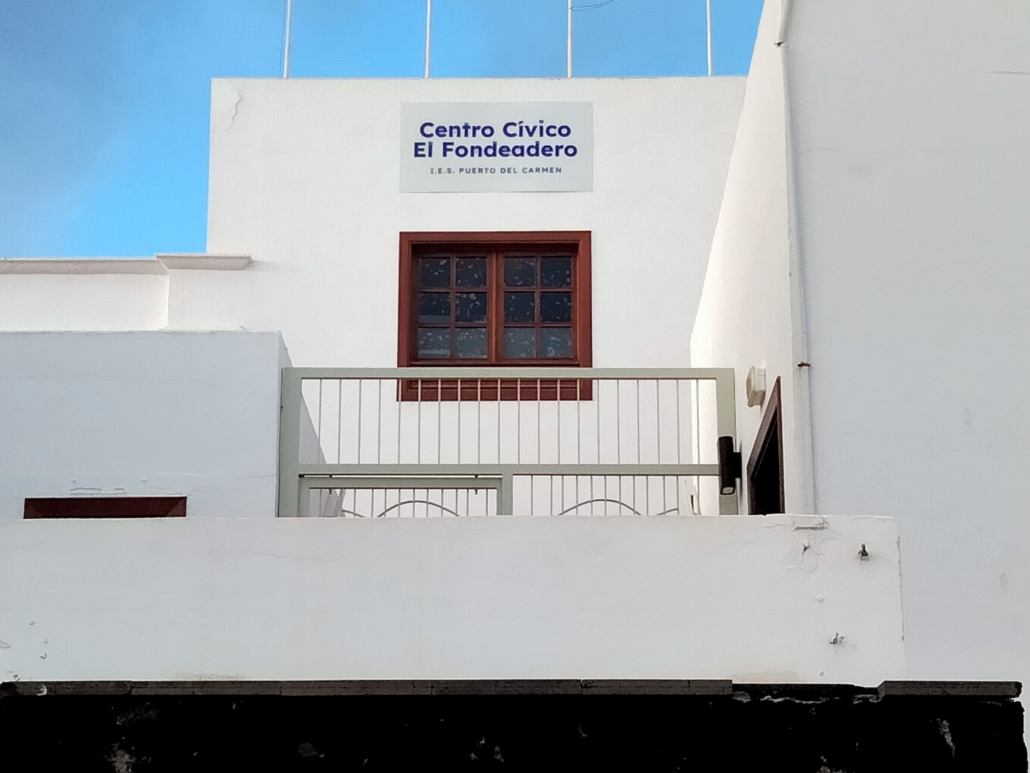
We arrived with fifteen minutes to spare and took what seemed to be the last two seats still unoccupied, so the performers were already guaranteed a full house.
Perhaps this was not surprising because one of the violinists is a much loved player here on Lanzarote. Iya Zhmaeva Nikolaeva, violin, was born in Volgograd, Russia in 1975, where she began her violin studies at the age of 6. She continued in 1995 at the Gnessin Higher School of Music in Moscow, under the direction of professor-graduate V.O. Rabei. Once she finished her studies in 2000, she completed a postgraduate degree as a violinist-soloist with the same teacher.
In 1982 she was awarded the 2nd Prize at the “Young Volgograd Violin Virtuosos” Competition.
In 1992 she was awarded 1st Prize at the “City of Volgograd” Violin Competition.
Between 1993 and 2002 she worked in different orchestras and musical groups in Moscow.
Since 2003, she has performed in different concerts as a soloist and with different groups on the island of Lanzarote.
In the years 2017-2020 she gave concerts in Berlin, Frankfurt am Main, Dresden, Tenerife, and Lanzarote with the “Lanzarote Ensemble” formation.
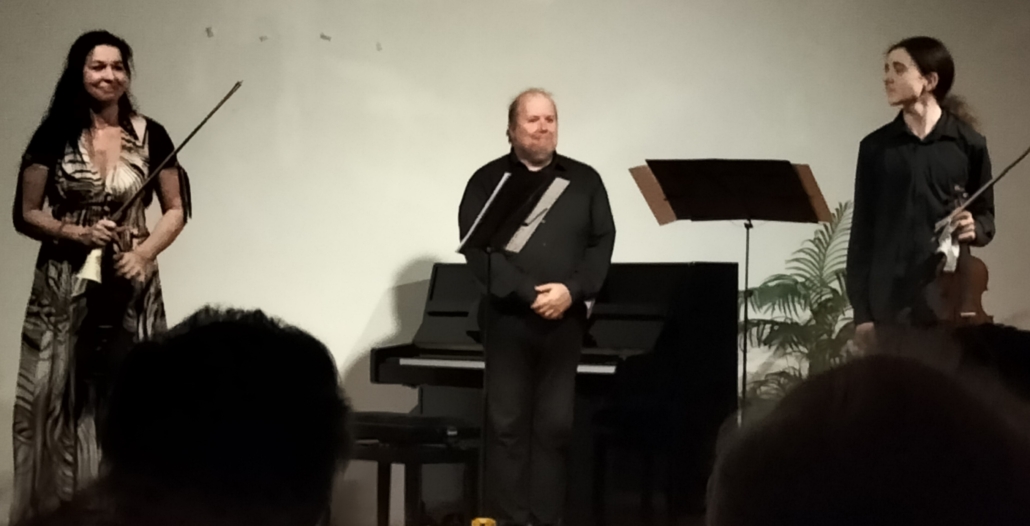
We have featured Iya and her music on several occasions on these pages over the past few years including an interview with her in which she spoke of her pride in the fact that her then young teenage son had just started studies at the music conservatoire in Arrecife, which has sent many fine musicians out into the world.
That little boy she spoke of so lovingly is now a musician of confidence and a style of his own.
We had seen him play only a fortnight or so ago and reported him here in our review of a concert by Coral In Dulci Jubilo. He was in support role on the evening but was brought back by the audience for an encore.
We did not realise at the time that he was the young son Iya had spoken of all those years ago when we interviewed her. Now here he is, playing in duet with his mother and supported on piano by somebody else very important to this story.
Javier Díaz González, (piano) was born in La Laguna, province of Tenerife, on October 27, 1972.
He began his musical studies at the Las Palmas Superior Conservatory of Music, specializing in piano, where he received classes with teachers Esperanz Estades and Maria Luisa Alonso. He finished his studies at the conservatory specializing in piano, and obtaining two more specialties in musical language and chamber music, with the best grades.
He took postgraduate piano courses, working with teachers and concert pianists in France, Carmen Martínez, Denise Pascal and Pierre Reach.
Currently, after this teaching, started to work in Lanzarote as a teacher of piano, chamber music, harmony, auditory education, and complementary work at the Insular Center for Musical Teaching, where he has been teaching for 24 years.
He has also performed numerous concerts, playing as a soloist, and especially in chamber music concerts, collaborating with different instrumental specials.
Tonight he was supporting a mother and her student son in a concert that was of consummate musicality rather than slick showmanship, that kept this full-house audience enchanted and engrossed.
The Bach section actually served to what the podcast, recommended by Steve Bewick, had alluded to. There were so many melodious asides that drifted away slightly before returning to the fold, in a similar way that occurs in jazz.
The Beethoven allegro and adagio were gorgeous: full and rich.
I cannot say I had previously heard of the composer C de Beriot, but after tonight I will definitely find out more. His ballet piece was full of graceful twists and leaps, but it was his beautiful Spanish Airs that spoke so much of Lanzarote and the Canary Islands too, that was so perfect for this evening.
There was a deserved encore, of course, with Iya and her son Diego giving us a sparkling duet.
Much as I love these classical concerts, it is modern folk music that I most love. So, although I left the theatre whistling some of what I had heard tonight, I next found myself whistling past the graveyard as they say, as the taxi driver taking us back to Puerto Calero relived his role in the car chases in the film The French Connection.
After picking up our own car I drove back at a safer pace, down the slow road home, whistling, for some, reason, Paul Simon´s Mother And Child Re-Union.
And that set me thinking, in all the three hundred years of Bach´s music and the hundreds and thousands of recitals, has there ever actually been another instance of a mother and child playing this music together in public?
This might well have been a unique occasion here on Lanzarote.
Thank you all three musicians for another wonderful free concert.




Leave a Reply
Want to join the discussion?Feel free to contribute!